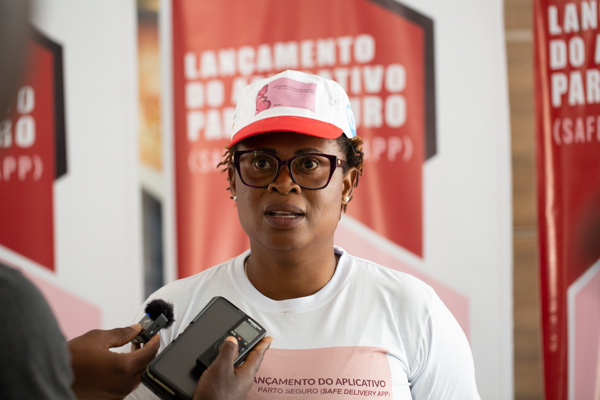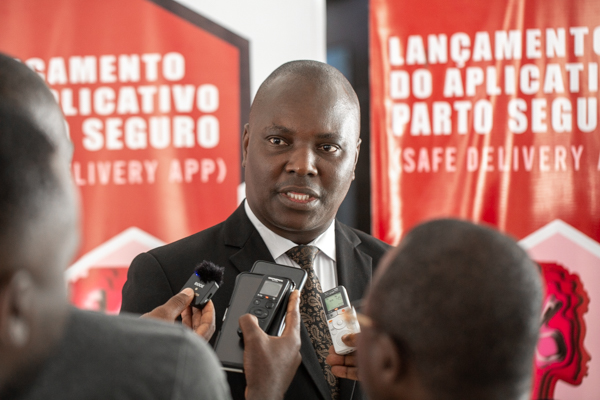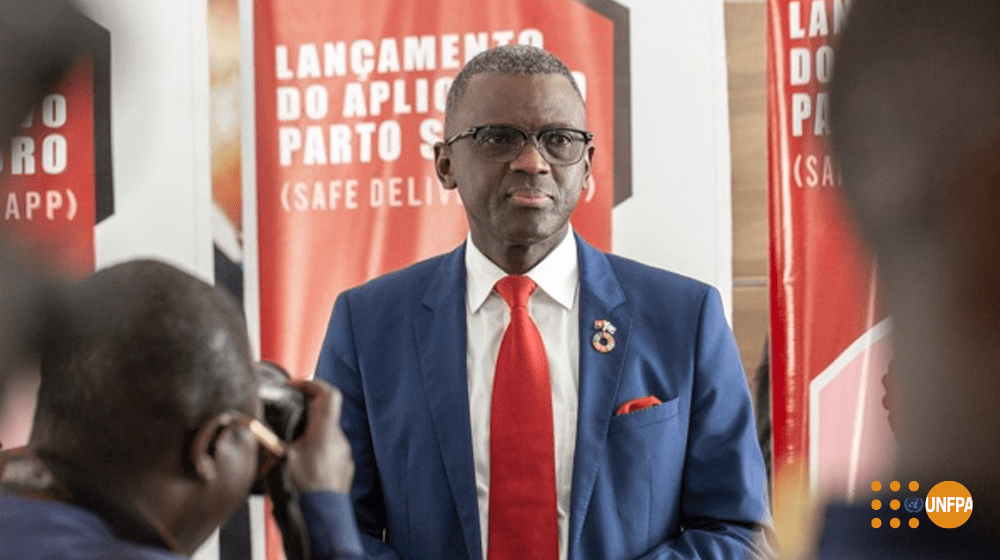How the Ministry of Health of Angola is UsingTechnology to improve Health Services in Drought Affected Regions and Mitigate the Effects of Climate Change
In order to strengthen health systems long term, Angola's Ministry of Health (MINSA) has developped the Health System Strengthening Program (PFSS). This week, as part of an ongoing partnership, PFSS has teamed up with the United Nations Population Fund (UNFPA) in the city of Moçâmedes, Namibe, to launch the Portuguese version of the Safe Delivery App (Safe Delivery App – SDA - in the English version). This technological tool will support ongoing training and practices in maternal health. In an initial phase, the app willl be utilised by 240 health professionals from regions affected by the drought in southern Angola.

As of the 17th of November these two hundred and forty health professionals from the provinces of Huila, Cunene, Namibe and Cuando Cubango have been trained and equipped to use a mobile phone app that provides technical and clinical instructions to guarantee quality response in maternal care including safe birth deliveries. This Safe Delivery Application, part of a larger program PFSS is implementing in the region, is a partnership with UNFPA and the Maternity Foundation. The Safe Delivery App (Portuguese version) includes an extensive library with up-to-date documents on clinical procedures, videos with clinical instructions and a catalog of training in the health care, which users can access according to their immediate needs and availability.
To enhance the use of the application, the Maternity Foundation will provide remote trainings to Angolan health professionals on how the platform works, and how to integrate it into specific training at health units in the region. A monitoring plan will also be in place for possible adaptations of the contents to specific needs specialised professionsal may eventually identify.
For UNFPA, it is an honor to work with health professionals on the front line of the drought, like Carolina Manuela de Sousa, Head Nurse at the 5 de Abril Health Centre. One of the recipients of the Safe Delivery Application training, Carolina, leads her team with inspired dedication. As part of the program, Carolina has additionally been trained in emergency neonatal obstetric care.

Severe drought has worsened living conditions for the provinces in southern Angola, and the government has responded by designing emergency response to create long term improvements in health care access and health service delivery. In a post-Covid-19 pandemic context, the Safe Delivery application responds to a need for continuous training by professionals in the health sector. It is clear that in remote geographical locations, with added difficulty of emergency context, digital solutions in providing services and information to professionals in the field, especially in digitally marginalized areas, is crucial to guarantee quality services to the most vulnerable families.
The introduction of the Safe Delivery App in southern Angola is part of MINSA's priority action program in the four provinces covered, where it carries out, in partnership with UNFPA, actions to mitigate the effects of drought and climate change. This includes the Program for Strengthening the of Health, and its component of Response to Sexual and Reproductive Health in areas affected by drought.The adaptation of the Safe Delivery application to the Portuguese language and context will allow this tool to be used in the Portuguese-speaking world, a possibility that is being managed by the UNFPA central office, together with the organization's representations in Portuguese-speaking countries.
At the launch of the Safe Delivery application in Moçâmedes, capital of Namibe, representatives of the Ministry of Health, UNFPA Angola and the World Health Organization were present, as well as members of the health sector and different levels of local government.

(Parto Seguro) in Namibe


